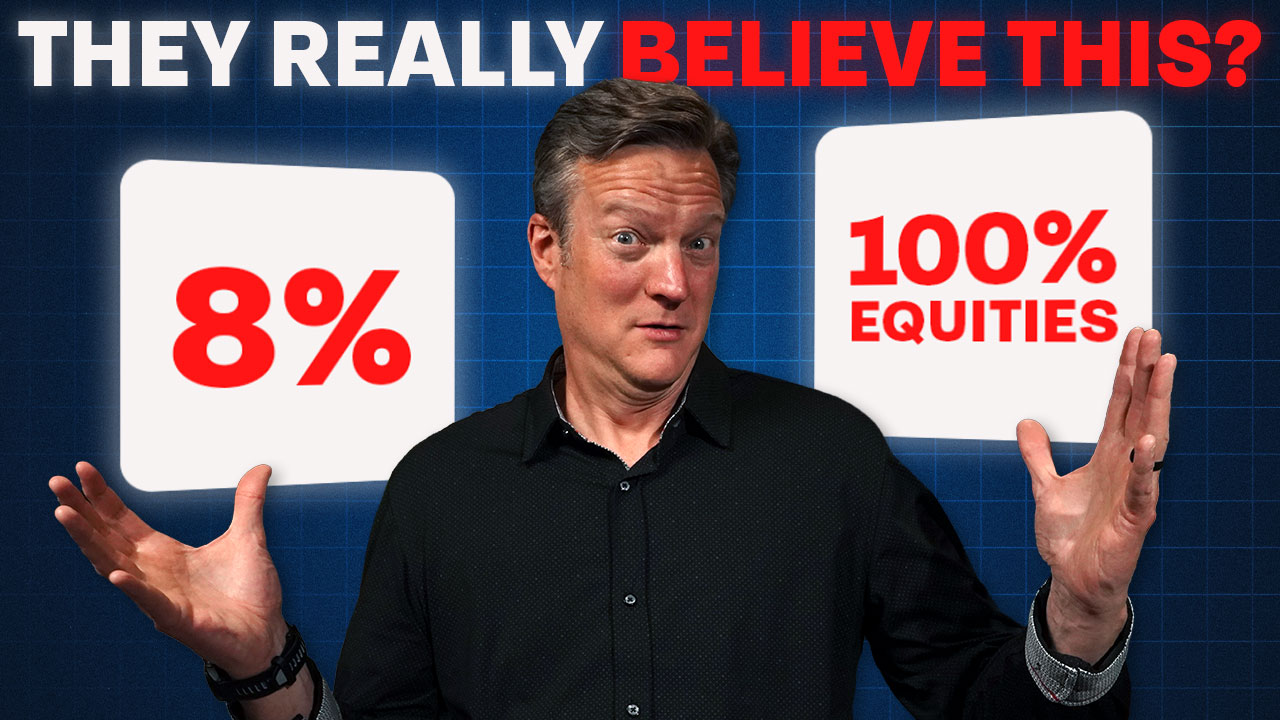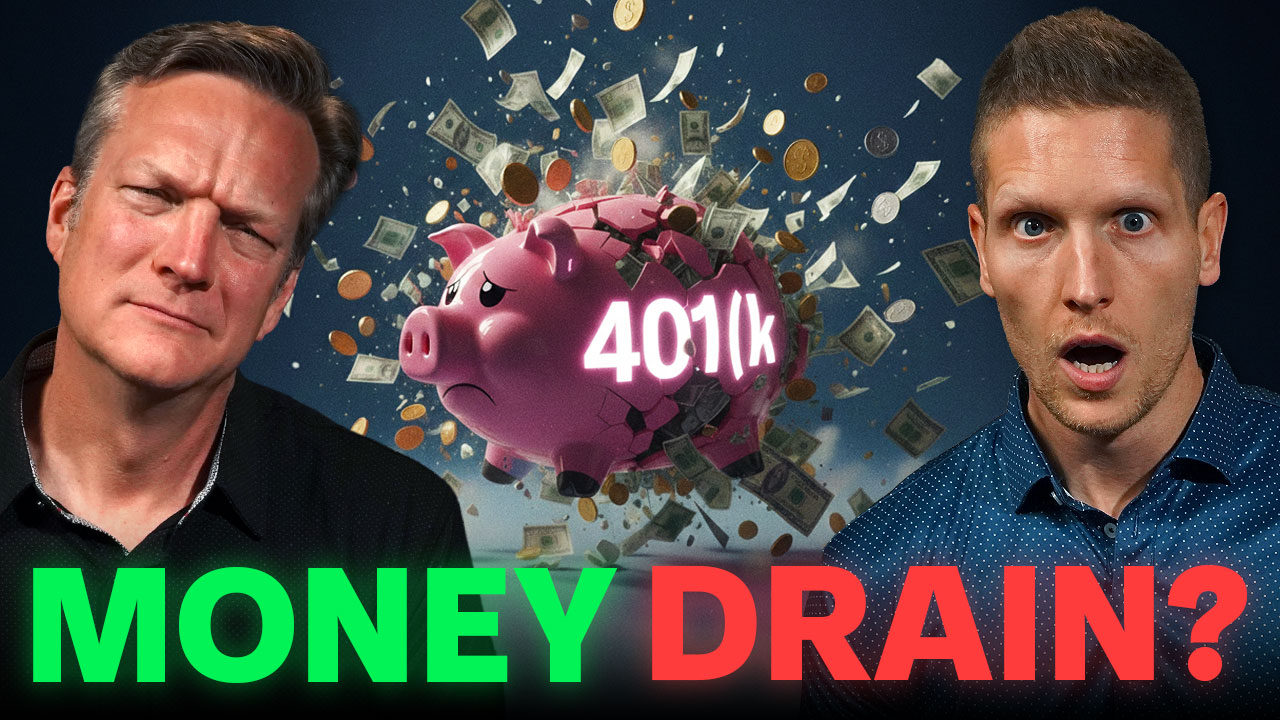So, we're going to kick things off with Logan's question. I've heard the "120 minus age" rule, quote-unquote, for stock and bond ratio in retirement accounts. Do the Money Guys show have recommendations? I'm 25 and feel like I don't need any bonds while growing to critical mass. What do you think?
So, here's, in my experience, here's the hard thing that I've heard about the like stock and bond ratios. I've heard a few, right? Like 120 minus your age, that's how I figured. I've heard 100 minus your age, that's how I figured. I've heard your age should be your fixed income risk-off exposure. Here's what troubles me. Logan, you're 25 years old. I have no idea how much money you have, so I'm going to project 25-year-old broke Bo onto you. So, I'm projecting. I don't know what you have going on.
The question that Logan, in my mind, should not be thinking about is, "Well, how much bond exposure should I have and how much stock exposure and how much my allocation being?" How should we? I don't want you focusing on that, Logan. What I want you focusing on is your savings rate. How many dollars can I be putting into my army of dollar bills so that it can start growing, so that it can start building, so that it can start working towards that great big beautiful tomorrow?
I feel like far too often young folks—I'm going to put myself in that category—we start majoring in the minors and get lost in the details that maybe are not that important. That's why for young folks, we think there are some solutions that make tons of sense that you can utilize that don't force you to have to make that decision. "Well, should I have it? Should I not have it? How much of it should I have? Agree? Disagree? Want to fight?"
Yeah, no. Logan, well, Bo, you've kind of converted me because I think us humans are—I remember—I think we are horrible decision-makers. We're herd animals. We like to feel comfortable, and you have to protect yourself from that. And what I like to do to protect myself is create behaviors that create easy, inevitable wealth. Set it, forget it, make it automatic for the people. And one of the easiest things to do is exactly what Bo just shared.
The biggest thing you do when you're young is, how do you turn your shovel, your income, into the most money that's going into saving and investments to grow for you? That's going to be much more powerful than even the investment initially that you're putting the money in. So, if you can take away the noise and just say, "How much can I save? When do I need it?" and then buy an index Target retirement fund. Remember, I said index Target retirement fund. The biggest providers for you to do your due diligence is at the Vanguards, the Fidelity Investments, the Schwabs.
Things get a bad rap from the people saying, "I don't want to have bonds in my 20s." Have you gone and looked at the actual portfolios of these things for somebody who's 40 to 50 years from retirement? Typically, they are going to have well below 10 percent in these bonds. And by the way, bonds right now, if you haven't been following, why have bonds been such sucker bets forever? It's because there was a 30-year period where we had declining interest rates. Um, so that caused a lot, you know, that was that was a period.
Now we've had interest rates go wham bam to the moon, and they're going, we're probably gonna have another decade or 20 years of declining interest rates. You actually might be surprised that bonds don't act like bonds; they actually have appreciation potential. I don't want to get into that. It is noise, so shame on me for being nerdy enough that I try to talk about this stuff. Because, Logan, you just need to focus on how do I get more money saved? How do I take away the quirks spending the energy I'm spending on this so I can save and build more and make more money at my job? Get the money into savings and investments. That's what's going to create success for you, Logan. Because when you're 25, your assurance of being wealthy when you're 45-50 is not assured. It's going to rely upon the small incremental decisions you're making right now. So make sure you're being efficient with everything you do. That's why we do talk about the
Financial Order of Operations. If you need to know what to do with your next dollar, all you have to do is go to
moneyguy.com/resources. We will load you up so there are no missteps, and you're going to do well.
And also, you know, Bo converted me, and I started off with this. I was going to make an exception to the rule and just tell people, "Go buy a total market index or go buy the S&P 500 in your 20s." But I realize, and we, from our conversation, a lot of people who make that decision in their 20s, are they going to go and start doing more diversification or doing a glide path or changing their allocation as they get older and have more success? No, because it's not going to be the behavior. So that's why I've come back to let's create the path of least resistance, take away the friction cost, make it simple. The easiest way to do it: how much can you save? When do you need it? Throw it into that index Target retirement fund. Wait until you get to five, six hundred thousand dollars of assets. Then we can have a much more complicated discussion because you've created success, which leads to natural complexity about tax location, other things. But right now, set it, forget it, and create inevitable wealth.
Yeah, the marginal incremental decisions I want you deciding, Logan. Alright, can I max out my Roth? Can I do my Roth and my HSA? Okay, how do I cut my monthly expenses? What bill can I cut? Okay, what can I do at work to move myself into a leadership role to potentially influence my income so I can save one? Those are the things you should be focusing on, not bonds. Bonds shouldn't even be on your lexicon right now. Set it, forget it, and build. I love inevitable wealth. I think it's awesome.










